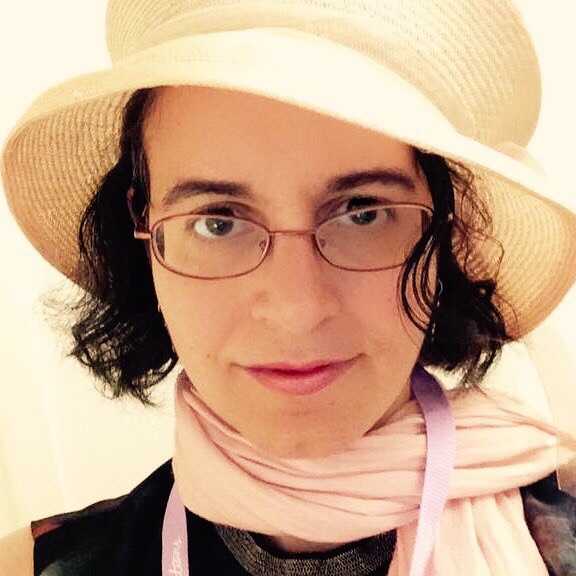The Bicentennial Frankenstein Project
Stitching the Seams of Textual Bodies
Speakers

In this talk, I will introduce the collaboration of the Pittsburgh Bicentennial Frankenstein team with MITH to produce a new and authoritative digital edition of the 1818, 1823, and 1831 published texts of Frankenstein linked with the Shelley-Godwin Archive edition of Mary Shelley’s manuscript notebooks. We have been hard at work on the project since fall, and aim to complete the project by May 2018, the bicentennial of the novel’s first publication. Preparing the edition has given us a fascinating vantage point on early work with 1990’s hypertext, as we began our work by up-converting hundreds of “hypercard” files in Stuart Curran and Jack Lynch’s Pennsylvania Electronic Edition of Frankenstein. That hypertext edition represented groundbreaking digital scholarship in the era of web 1.0, by deploying an interface for reading the 1818 and 1831 texts in juxtaposed parallel texts. Our work on the project has involved polishing and repurposing the code of Curran’s and Lynch’s electronic editions of the 1818 and 1831 texts. With help from Rikk Mulligan, Digital Scholarship librarian at Carnegie Mellon University, we have been correcting our restored text against photo facsimiles of the originals, and we have prepared plain text and simple XML editions from OCR of the 1823 edition, derived via ABBYY Finereader, and formatted like our editions of the 1818 and 1823. We have been preparing a new edition in TEI by first processing these documents with CollateX, which computationally locates the points of variance (or “deltas”) among the editions and outputs these as a single critical edition with TEI XML critical apparatus markup. Collating the print editions establishes a basis for one last and especially challenging stage of our project. We are now working with Raffaele Viglianti to integrate the Shelley-Godwin Archive’s manuscript notebook drafts of Frankenstein with our critical edition of the published novels. For this we are planning a new implementation of TEI critical apparatus markup to point to specific locations in the manuscript notebooks. This will provide a way to link a reading interface of the novel that highlights “hotspots” of variance in the print edition and that links into relevant passages in the Notebooks. We will be offering our bicentennial edition to update the one currently hosted by Romantic Circles. Our new edition’s reading interface should invite readers to learn the interesting story of how the events and characters of the novel changed over the first decades of its life, from the time of its first drafts by its 18-year-old author to the changes imposed by authors and editors over three published editions from 1818, 1823, and 1831. We hope our edition will inspire fresh investigations of longstanding questions about Frankenstein’s transformations, such as the extent of Godwin’s interventions in the text in 1823 and how many of these these persist in the 1831 text. This dialogue offers a chance to share views of the new TEI edition underway, and invites reflection and discussion of our textual methods in stitching together our new textual “monster.”
Speaker Bios
Elisa Beshero-Bondar, PhD researches British Romanticism in poetry and drama from the 1790s - 1830s. Her book about women Romantic poets, titled Women, Epic, and Transition in British Romanticism, was published by the University of Delaware Press in 2011, and she has published articles investigating the poetry of Robert Southey, Mary Russell Mitford, and Lord Byron in context with 18th- and 19th-century views of revolution, world empires, natural sciences, and theater productions. She is currently exploring the applications of TEI XML and other markup languages in Digital Humanities research. She is the architect of the Digital Mitford Project and works on other collaborative digital archives and research projects using computational methods to study complicated textual questions, such as Amadis in Translation and the Bicentennial Frankenstein Project. An active member of the Text Encoding Initiative (TEI), she was elected to serve on from 2016 to 2017 on the TEI Technical Council, an eleven-member international committee that supervises amendments to the TEI Guidelines. A faculty member at Pitt-Greensburg since 2004, she serves as the Director of Pitt-Greensburg's Center for the Digital Text, which supports digital project development and research collaborations among faculty and students.
Media
A continuously updated schedule of talks is also available on the Digital Dialogues page.
Unable to attend the events in person? Archived podcasts can be found on the MITH website, and you can follow our Digital Dialogues Twitter account @digdialog as well as the Twitter hashtag #mithdd to keep up with live tweets from our sessions. Viewers can watch the live stream as well.
All talks free and open to the public. Attendees are welcome to bring their own lunches.
Contact: MITH (mith.umd.edu, mith@umd.edu, 301.405.8927).
